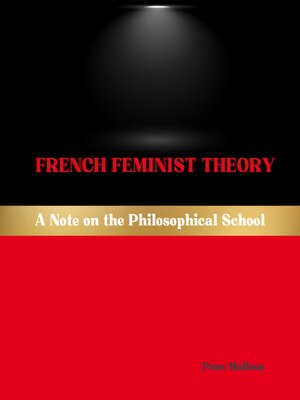French Feminist Theory
audiobook (Unabridged) ∣ A Note on the Philosophical School · Western Philosophical Schools
By Pons Malleus

Sign up to save your library
With an OverDrive account, you can save your favorite libraries for at-a-glance information about availability. Find out more about OverDrive accounts.
Find this title in Libby, the library reading app by OverDrive.



Search for a digital library with this title
Title found at these libraries:
| Library Name | Distance |
|---|---|
| Loading... |
This audiobook is narrated by a digital voice.
This audiobook emerges from a sustained engagement with the complex and often provocative landscape of French feminist theory—a movement that is less a cohesive school of thought and more a constellation of philosophical inquiries into language, subjectivity, embodiment, and power. Situated at the intersections of poststructuralism, psychoanalysis, and political critique, French feminist thought has long challenged the foundations of Western philosophy, interrogating the presumed neutrality of its categories and exposing the gendered dimensions embedded in its logics.
The thinkers whose work this audiobook explores—most notably Simone de Beauvoir, Luce Irigaray, Hélène Cixous, and Julia Kristeva—do not constitute a unified theoretical bloc. Each approaches feminism with distinct methods and vocabularies, often diverging sharply in their aims and assumptions. What binds them, however, is a common resistance to reductive accounts of womanhood and a shared suspicion of philosophical traditions that silence or exclude feminine difference. Rather than offering a singular definition of what it means to be a woman, French feminist theory foregrounds multiplicity, fluidity, and the irreducibility of lived experience.
At its core, this movement critiques the phallocentric structures of meaning that have dominated Western discourse. Irigaray, for example, famously argued that women have been constructed as the "Other" of man—defined only in negative relation to a male norm. Cixous proposed écriture féminine, a radically embodied writing that disrupts linear, patriarchal narratives and expresses what traditional language has repressed. Kristeva's psychoanalytic theories complicated notions of identity by revealing the instability of the speaking subject, while Beauvoir's existentialism laid the groundwork by asserting that woman is not born but becomes—a call to acknowledge the historical and cultural production of gender roles.







